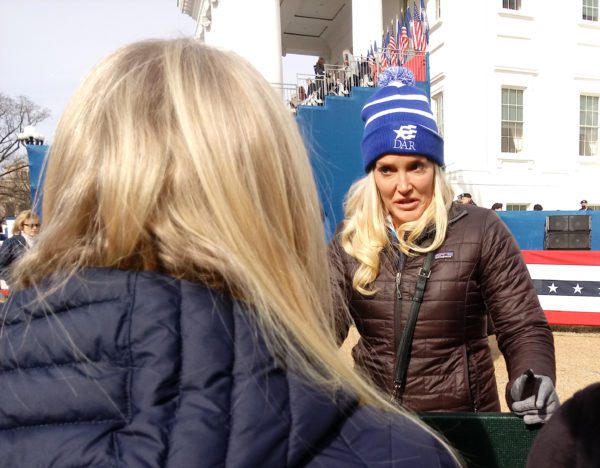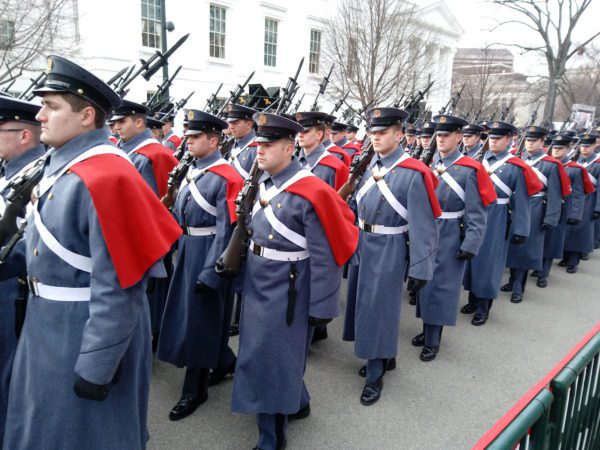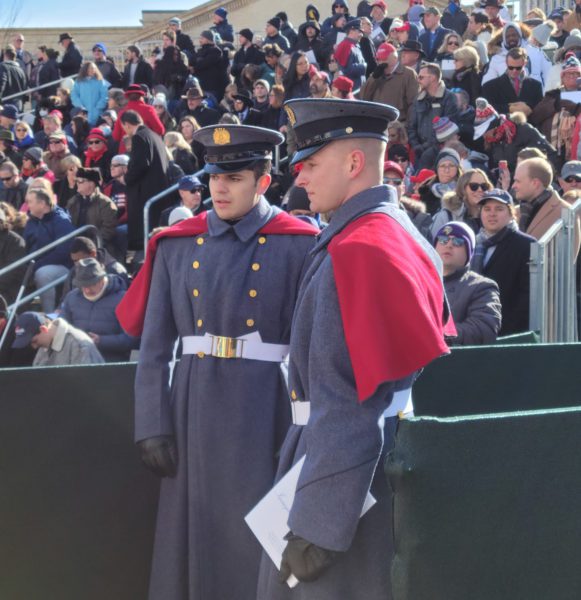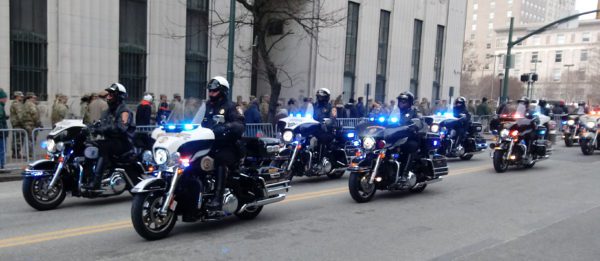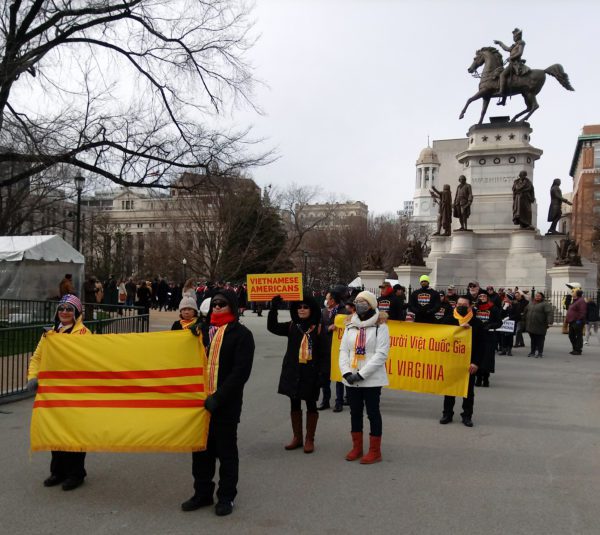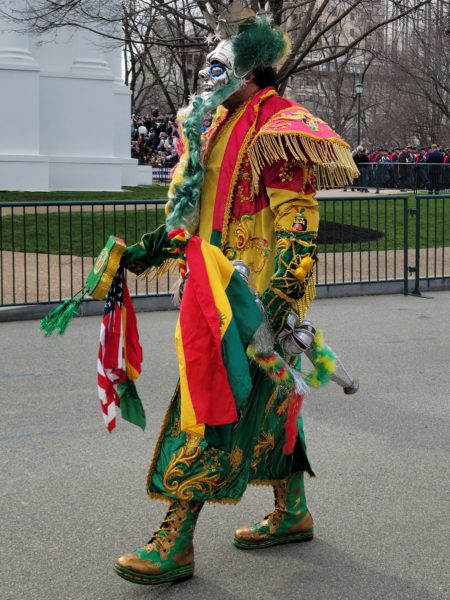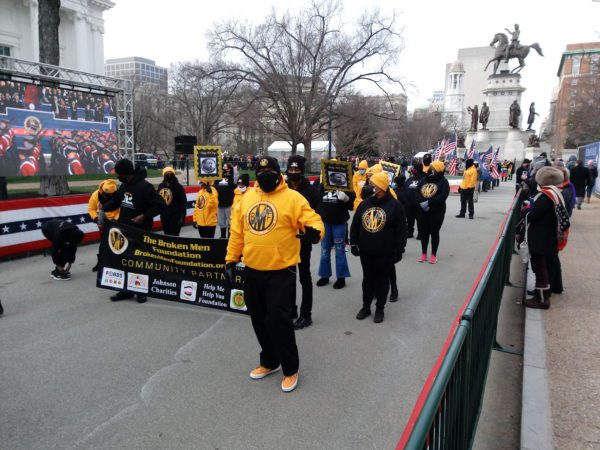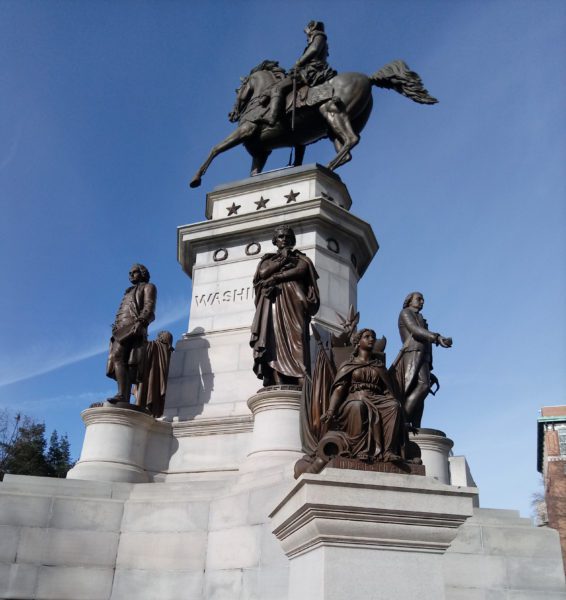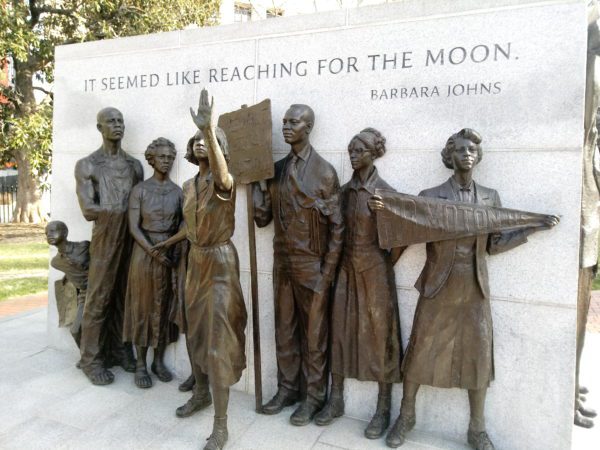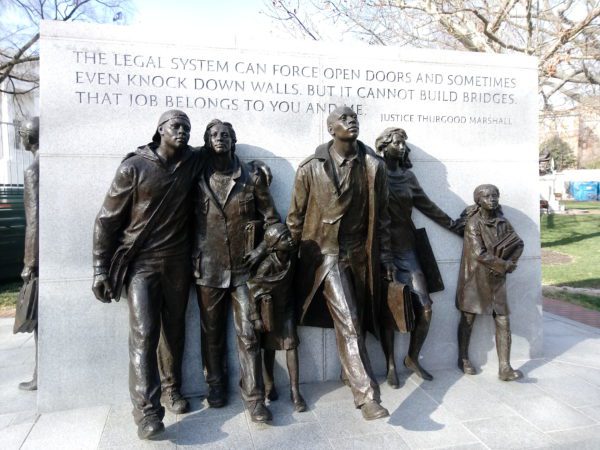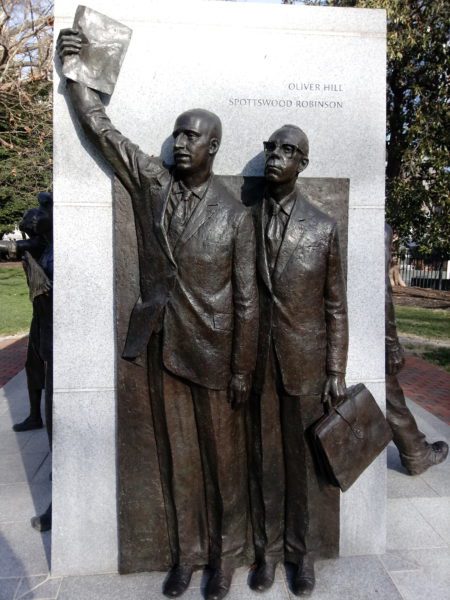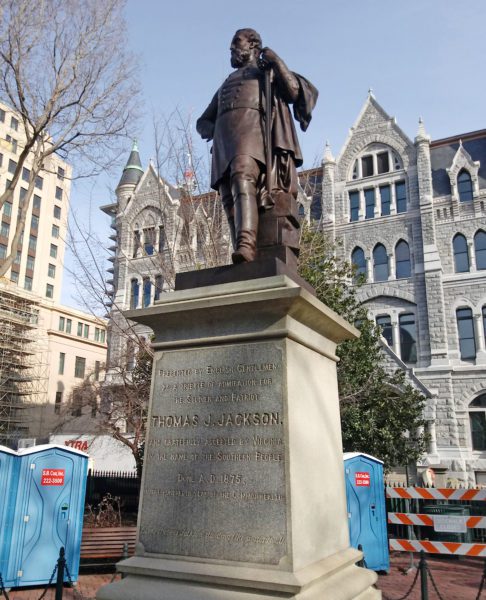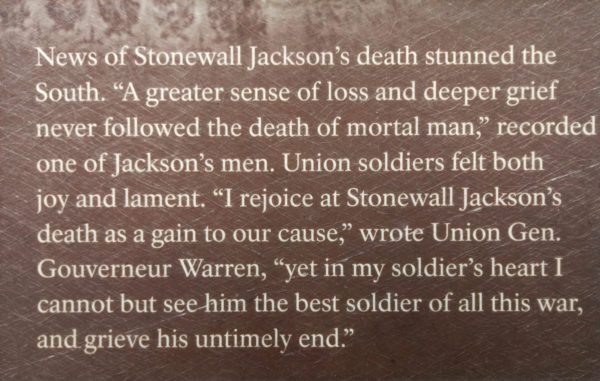Eyewitness Report: A Multi-Culti Inauguration for Virginia
- Post AuthorBy Jared Taylor
- Post DateMon Jan 17 2022
Last week, Gregory Hood wrote that Republicans may take back the House in the midterm elections this year, and then asked: Should we care? Two days ago, at the inauguration of the new Republican governor of Virginia, I think I learned the answer to that question.
In 2020, Virginia voted 55 percent to 45 percent for Joe Biden over Donald Trump, so Glenn Youngkin’s upset is supposed to herald great things for Republicans. Republicans depend on whites — 85 percent of Mr. Trump’s 2020 voters were white — and the huge crowd at the inauguration was more than overwhelmingly white. Mr. Youngkin was greatly helped by white voters who were angry about Critical Race Theory taught in school and furious that the Democrat, Terry McAuliffe, brushed their anger aside. A rising tide of whites is beginning to understand race, but the inauguration proved that the party understands nothing. From the invocation that invoked Martin Luther King to the benediction that included a blessing in Spanish, it was diversity, start to finish.
The kind of people at the inauguration — party officials, campaign workers, officer holders — were whiter than white. I don’t know when I’ve seen so much long, blond hair in one place.
Like so many Republican events, there must have been more blacks on the podium than in the stands.
Black preacher Calvin Duncan gave the opening prayer and quoted Martin Luther King: “Hate cannot drive out hate. Only love can drive out hate.” I wonder what kind of “hate” he had in mind. A white guy pledged allegiance, and two white guys sang the national anthem — usually a guaranteed slot for a black — and then the three new state-wide officer holders took the oath of office. Attorney General Jason Miyares (Hispanic) was sworn in by Judge Kevin Duffan (black). Lieutenant Governor Winsome Sears (black woman) was sworn in — to tumultuous applause from the blondes — by Judge Richard Taylor (black). Glenn Youngkin, white man, was sworn in by a tag team: Bernard Goodwin (black) and Elizabeth McClanahan (white woman). The shouting and clapping for Winsome Sears certainly equaled that for Glenn Youngkin.
In his inaugural address, Mr. Youngkin regretted “the rise of divisiveness in the public square,” promised to “restore trust in government” and “bind the wounds of division,” mourned “the tragic consequences of Covid-19,” told Virginians they are a “resilient and courageous people,” and proclaimed “a new and better day ahead.”
He also told us we lived in “the most exceptional nation in history,” but that it had “chapters of great injustice.” We mustn’t forget that. He praised “barrier breakers” such as Maggie Walker and Douglas Wilder. I would bet not one person in 500 knew who Maggie Walker was. She was a very light-skinned black woman (1864 – 1934) who started a bank and was its president. Her house is now preserved by the National Park Service as the Maggie L. Walker National Historic Site. Douglas Wilder was governor of Virginia from 1990 to 1994 and was the first black since Reconstruction to be elected governor of a state. So far, his house is not a National Historic Site.
Talk of barrier-breaking was a warmup for Mr. Youngkin to thump his lieutenant governor, Winsome Sears. She was born in Jamaica and is the first lady-lieutenant-governor and first non-white woman ever elected to state-wide office in Virginia. The crowd roared itself hoarse over this and then roared some more when Mr. Youngkin boasted that with a Hispanic attorney general, this was “the most diverse leadership in commonwealth history.”
Mr. Youngkin, too, quoted MLK: “We came on different ships, but we’re in the same boat now.” “Our ship is named Virginia,” he said, “and it’s big enough for the hopes of a diverse people. We welcome all, because the future belongs to all.” The crowd gurgled with delight.
However, those white people let out their loudest whoops when, in a reference to Critical Race Theory, Mr. Youngkin said, “We will remove politics from the classroom and focus on essentials.” They were not as vocal when he added, “And we will teach all of our history, the good and the bad.”
Next was a very dark Indian woman, Suparna Dutta, who fought relaxation of standards at selective Virginia schools because that would mean fewer Asians admitted to the school her son attends. She read Robert Frost’s “The Road Not Taken,” which Mr. Youngkin chose for her. Then came the benediction by Spanish-speaking Pastor Jonathan Avendano of Iglesia Mana del Cielo. Making it to America really does mean mana from heaven.
After him came a “blessing dance” of representatives from the 11 Indian tribes of Virginia, which consisted of tom-tom beating and outlandish chanting. The three newly-sworn-in officials came down from the stands for a personal blessing and to sniff the smoke from the sacred fire.
And, finally, there was an anthem, “The Blessing,” by the all-black choir of Virginia Union University.
No one, of course, sang “Carry Me Back to Old Virginny,” which was the state song until 1997, when it was fired for “racism.” It was written by a black man — how many states can claim that? — but James Bland’s lyrics are literally unthinkable by today’s standards: “Massa and Missis have long gone before me / Soon we will meet on that bright and golden shore. / There we’ll be happy and free from all sorrow, / There’s where we’ll meet and we’ll never part no more.”
The ceremony ended with a parade: a strange collection that, presumably, represents Virginia. The corps of cadets of the Virginia Military Institute marched by very snappily.
Some of the cadets made a good impression as ushers during the ceremony.
Police motorcycles roared.
There was a gaggle of Vietnamese Americans, waving their national flag and a handful of Latinos for Youngkin, also with their national flags.
Part of the Latino collection was this weird fellow, who at least carried an American flag.
There was also a group of blacks from something called the Broken Men Foundation, which tries to “make broken youth better men.”
The inauguration and even the setting were a jarring mix of what Virginia used to be and what it has become. Before the ceremony, a military band played classic marches: “Starts and Stripes for Ever,” “Under the Double Eagle,” “Semper Fidelis.” Whenever the band took a break, the PA system blared synthetic disco music.
The older monuments on the Capitol grounds are, of course, to the state’s white past. George Washington is still astride his horse as part of a magnificent group unveiled in 1858.
He has an honor guard of Virginians: Patrick Henry, George Mason, John Marshall, Thomas Jefferson, Andrew Lewis (fought under Washington in the French and Indian War and during the Revolution), and Thomas Nelson (signed the Declaration, was a military leader and statesman).
These men — all white, mostly slaveholders — would be excellent candidates to represent Virginia along with George Washington in Statuary Hall at the US Capitol. The now-contemptible Robert E. Lee was spirited away by dark of night on December 20, 2020, after standing at Washington’s side for 111 years. He will be replaced by a giant statue of a black woman who stars in a more recent memorial on the state-house grounds: Barbara Johns.
Johns’s claim to fame is to have organized a one-day student strike in 1951 to demand equal facilities for black schools — not integration. She went on to become an elementary-school librarian. Her monument honors blacks on all four of its sides.
To my surprise, Stonewall Jackson still stands on the Capitol grounds.
The inscription on the base reads:
Presented by English Gentlemen as a tribute of admiration for the Soldier and Patriot Thomas J. Jackson, and gratefully accepted by Virginia in the name of the Southern People. Done A.D. 1875, in the hundredth year of the Commonwealth. “Look, there is Jackson standing like a stone wall.”
As his first official act — as promised — Governor Youngkin signed an executive order banning Critical Race Theory in public schools. Today, he is celebrating Martin Luther King’s birthday. He will certainly not lay a wreath at the Stonewall statue — just a few steps from his new home in the governor’s mansion — to celebrate the general’s 198th birthday on Friday. Will he fight to end discrimination against whites? No. Will he say anything about illegal immigration, much less do anything about it? No. Will he even whisper a single word that suggests he has any idea what demographic replacement means for Virginia? Of course not. And I suspect that any new Republicans who turn up in Washington after the primaries will be no different.
On my way home from Richmond, I visited the site where Stonewall died, May 10, 1863, after the Battle of Chancellorsville. There are a few exhibits, one of which shows a far nobler sentiment than any we are likely to hear from today’s Republicans.
